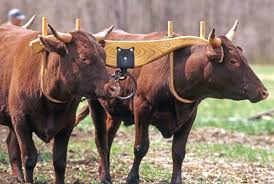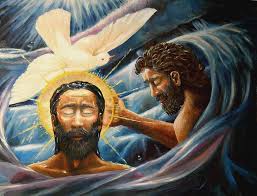Have you ever heard the name Elizabeth Platz? I have to admit it: I had never heard about her until recently. But this woman made history: she was the first woman to be ordained a pastor in the Lutheran Church in America, short LCA, one of the predecessor bodies of the Evangelical Lutheran Church in America, of which we are a part. The year Elizabeth was ordained: 1970.
This past week, on June 29th, to be exact, was the 50th anniversary of the vote of the LCA to allow women to be ordained. And this is a lesson in the power of words and how just one word can change everything: just one word was changed in the Bylaws of the LCA – from ‘man’ to ‘person’. And so the changed bylaw now read: ‘A minister of this church shall be a person whose soundness in the faith, aptness to teach, and educational qualifications have been examined and approved in the manner prescribed in the constitution, and who has been properly ordained.’
Now of course this didn’t happen overnight. There had been many heated discussions about the role of women in the church – and in many churches today, this discussion is still ongoing. In Europe, the Norwegian Lutheran Church was the first to acknowledge that women may have the gifts and the call to be an ordained minister – and ordained the first women just after WW II. In Germany, the first woman was ordained in 1958 – although woman pastors in the Evangelical Church in Germany were required to be celibate. That law wasn’t changed until 1974.
But that just as an aside. Women all over the world, women in the United States had fought for years to become ordained ministers in Lutheran church bodies. They went to seminary, even though they didn’t know as to whether they’d ever be ordained. They advocated and protested and slowly, but steadily, made change happen. And I personally want to give thanks to Elizabeth Platz and all the other women who blazed that trail – I give thanks for their tenacity, and their unwavering hope that God, indeed, has the power to make all things new – even though human beings are sometimes a little slow to catch on.
And look where we are 50 years later. Today, roughly one third of all ordained minsters in the ELCA are women. Here in San Francisco, women pastors even outnumber their male counterparts almost 2 to 1.
Now woman ordination doesn’t just mark a triumph. Many if not all of those early woman pastors experienced opposition and discrimination. Even today, 50 years – half a century – later, woman pastors are often regarded differently and judged differently than their male counterparts – and, on average, earn 20% less than men. It looks like we still have some way to go.
Now women of course didn’t enter ordained ministry because it’s a matter of prestige or privilege – they entered it because they felt that nagging call of God to do God’s work and proclaim the good news of God’s kingdom come near in a world that so often is dominated by bad news; it is a kind of work that is very gratifying, but also the kind of work that feels burdensome at times, since you help others carry their loads in life. And I would know, because I am one of those women.
Almost exactly 18 years ago, I was ordained at St. Matthew’s. And I remember that day with gratitude: many of you were there that day and made it really special! And by the way, I found a picture from that day.
But there is one memory that especially has left its mark on me to this day: when it was time for the bishop, in that case Bishop Mullen, to bless and consecrate me, he and some clergy colleagues who were gathered that day laid their hands on me as I was kneeling down. I had prepared for a long time to get to that point, and finally, finally, the moment had come.
But let me tell you, it was so unlike what I had expected. What did I expect? Maybe that mysterious presence of the Holy Spirit, which lifts me up and elates me. But when those hands were laid on me, it wasn’t done tenderly and lightly, but with deft and heft. There was all this weight on my shoulders. Yes, I felt the Holy Spirit that moment, but it literally bore down on me. And as I was kneeling there, struggling to keep a straight posture, I was wondering: is this what ministry will be like for the rest of my life? Jesus Christ, what have I gotten myself into?
But I would say that this is not just a sign of life as an ordained minister, but the life of a Christian in general.
Jesus says, ‘Come to me, all you that you are weary and are carrying heavy burdens, and I will give you rest. Take my yoke upon you, and learn from me: for I am gentle and humble in heart, and you will find rest for your souls. For my yoke is easy, and my burden is light.’
It seems to be an oxymoron, doesn’t it? Come to me, you who are burdened, and I will give you rest. And then: take my yoke upon you. This is one of those passages where we might want to say, well, Jesus, is it one or the other? Make up your mind!
But, as so often with the sayings of Jesus, there is no simple solution; on the contrary, Jesus wants to challenge us, he wants us to stop in our tracks and think things over, come at them from a totally different angle. Yes, in Jesus Christ, we find rest, and we can just dump anything that burdens us on him. But that doesn’t mean that Christ promises us a plush life without any challenges.
And that may be hard to take for us in these post-modern times, when our values, individually and as a society, seem to be mostly about comfort and independence and personal freedom. We experience right now how there are those for whom their personal freedom and convenience and pride are infinitely more important than care for the neighbor as they refuse to wear face coverings and keep their distance from others during this time of the COVID pandemic.
The general attitude seems to be: why care about someone else? I don’t want to have to rely on anyone. I don’t want to be dependent on anybody. And, on the flipside: I don’t want anyone to depend on me and my hard-earned accomplishments. Let them fend for themselves as I have fended for myself. I don’t want to carry a yoke.
But, as we all know, total independence, total freedom is an illusion. Unless you live as a foraging hermit somewhere, you depend on the larger community, on society; and even as a foraging hermit, you rely on God’s creation to provide you with what you need to live.
And whenever we live in a community, it’s not only take, but give and take. It’s called interdependence – we rely on each other. We are yoked together. And, yes, this also means that we do our part, that we serve to our abilities as we are served in many other ways by the community around us. Ideally, we all contribute according to our ability. I know this sounds utopian – or like the kingdom of heaven.
Like it or not, we always carry some yoke. But what is a yoke for? Just think of a work horse or oxen in the fields: a yoke makes work easier for the beast. It helps distribute any weight that has to be dragged more evenly. Often, two animals are hitched to the same yoke, thus helping each other. And the easy yoke Jesus talks about is a yoke that fits well. It makes work and service in this world easier for us. It is a yoke of love, mercy and compassion.
50 years ago, the long overdue decision was made to let women follow God’s call and help men carry the yoke of ordained ministry – to share the load, to share their particular gifts so desperately needed in a broken and hurting world. And ever since, more and more beloved and gifted children of God have been invited to do God’s work in ordained ministry: gay and lesbian folks living in committed relationships, queer folks, transgender people…and I give thanks for these siblings each and every day. We’re in this together. We are hitched together under Christ’s yoke of love and mercy and compassion.
I give thanks for all of you who, in your own and very important way, do the work of God and proclaim the kingdom of God come near in word and deed. We’re in this together. We are hitched together under Christ’s yoke of love and mercy and compassion.
My hope and prayer for us all is that we embrace this yoke the interdependence we experience: in God’s church, but also in our communities, our societies, and our world. That we receive what others have to offer with gratefulness and do our part with joyful hearts.
I pray that we will experience Christ’s yoke as a gift to help us do our part in this world. And that we will not forget that we individually are not carrying the burden of the world, although it maybe sometimes feels like it – but that there is the community of saints, the community of humanity to share the load. And most of all: that Christ offered to take the burden and the sin of the world upon himself. We can throw everything that worries and hurts and burdens us onto Christ.
And Christ tells us: we are hitched together under my yoke of love, mercy and compassion. We are in this together.
This post is also available in: German






